'Voices of Lefferts' Community History Project Fundraises to Stay Afloat
The volunteer-led effort to document the history of Prospect Lefferts-Gardens and its citizens is enlisting the help of the community to maintain their mission.

Deborah Mutnick and Steven Rice at a Fall 2018 workshop. Photo by Alexis Holloway
Voices of Lefferts, a volunteer-led effort to document the history of Prospect Lefferts-Gardens and its citizens, is enlisting the help of the community to maintain their mission as they fight to stay afloat after a particularly difficult year left them without the grant funding they usually depend on.
Launched in 2017, the multifaceted project is dedicated to educating neighbors about local history and recording that history in oral interviews and in a twice-annual publication called Voices of Lefferts: The Flatbush-PLG Community Writing Journal.
Since its inception, Voices of Lefferts has been funded by grants awarded by the nonprofit Humanities New York, the Brooklyn Arts Council and Citizens Committee for New York City. Those grants paid for rented space at the Grace Reformed Church, the cost of printing each issue, and for the work provided by the organization’s graphic designers, photographers, copyeditors and more.
This year’s grant cycle just didn’t go the way they’d hoped, said Deborah Mutnick, director and cofounder of the project. With the hope of creating some new programs, they applied for larger grants than usual, from the Library of Congress and the American Council of Learned Societies. If they’d received those grants, Voices of Lefferts was hoping to continue their usual workshops and publications, plus start a partnership with the Flatbush African Burial Ground Coalition, launch some new kids-focused programs, and work with a local musician to start documenting music in the neighborhood.
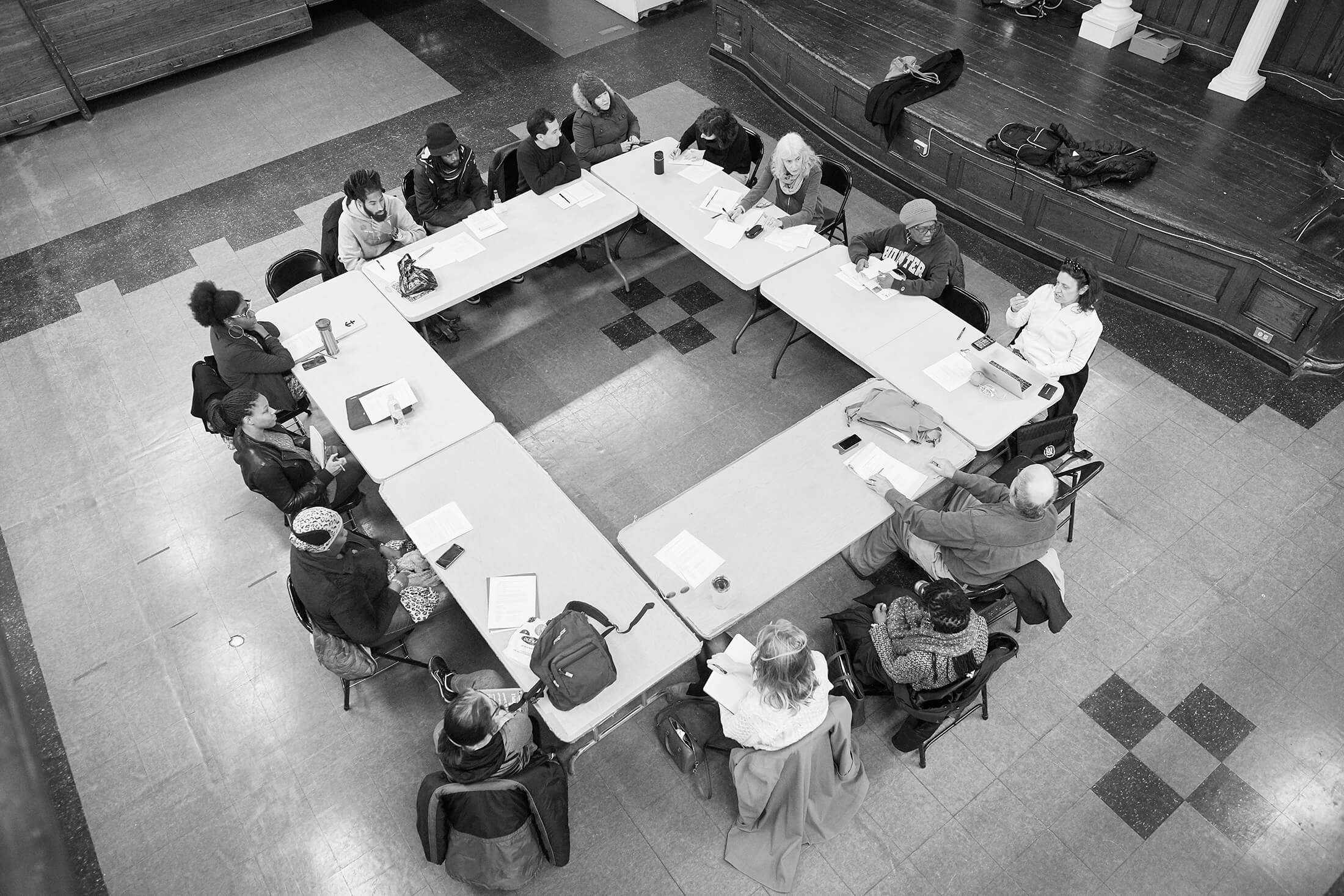
They didn’t receive either, likely because of a particularly competitive field of applicants, Mutnick said — everyone was hit hard by Covid, and most organizations are in need of money to recover. With one application still pending and months until new applications open again, Voices of Lefferts was in a tough spot.
So, earlier this month, Mutnick and the team launched a GoFundMe page, aiming to raise $7,500, which would cover the publication of the next three copies of the journal, one of which is already in production. So far, the campaign has raised $3,370.
“We’re one of many projects that are really great projects, and do important work in communities that amplifies community voices and tells stories that would never get told otherwise,” Mutnick said. “We’re certainly not alone in what we do. The funding for these projects is not easy to come by.”
Printing a run of each issue costs between $800 and $1,000, she said, and that’s including a discount from the printer. Voices of Lefferts has an ongoing partnership with Greenlight Bookstore, which sells the journals and hosts live readings, and they give a cut of each $6 sale back to the organization.
“Greenlight boasts that we’re the best-selling book they have, we regularly sell out,” Mutnick said.
But even with a more generous slice of revenue than Greenlight would usually offer, since Voices is a community organization, it’s not enough to cover the cost of printing. If they can’t raise the $7,500, upcoming issues could be shifted to online only.
“I’m all for digital communications, but having this in particular, this print journal, in your hands, there’s a need for it, I think, in the community,” she said. “I think that we’ve raised as much money as we have so far is indicative of the support we have.”
Each writing workshop is made up mostly of new contributors, she said, who have decided to tell their story for the first time. Anyone of any skill level is welcome to attend and submit a piece to the journal. Some members don’t write at all, she said, and dictate their stories to others to write out.
Tim Hunter, a 23-year-old resident of the neighborhood and candidate for state assembly member in District 43, which includes Crown Heights and Prospect Lefferts Gardens, is in the midst of working on a piece in Voices of Lefferts’ current workshop. Though he’s no stranger to writing political missives, most of Hunter’s writing hasn’t called for a whole lot of emotion, he said. His piece for the journal is different.
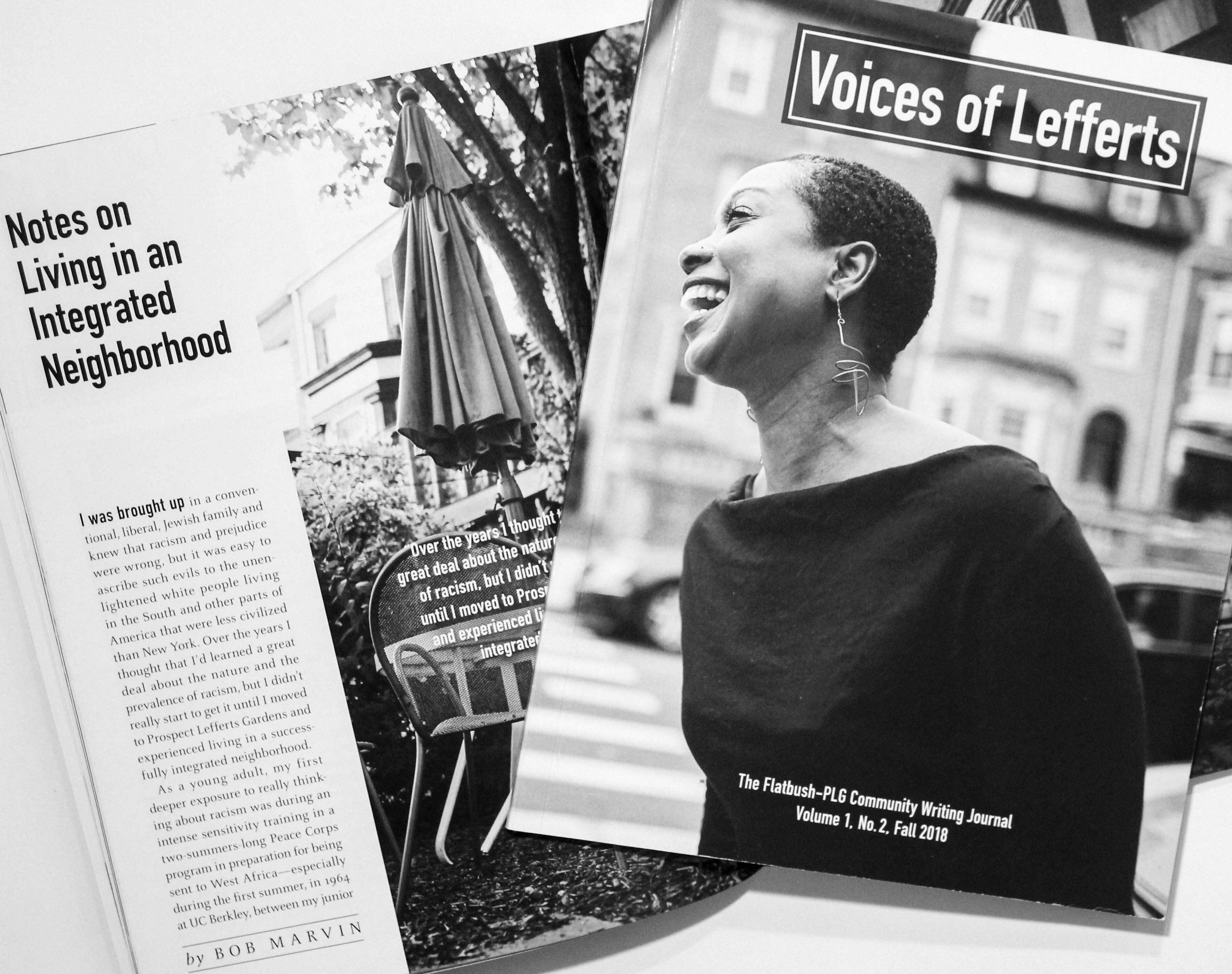
“My piece is on the dollar vans that are on Flatbush Avenue, and Utica, and Church Avenue, and how they sort of serve as the guardians of our district and our community,” he said. “It’s been great, such a really good, tight-knit community. It’s been great, being able to talk to folks about their experience of PLG, and what PLG means to them.”
A frequent passenger on the dollar vans, Hunter is writing about his own experience riding them from Flatbush Avenue to Downtown Brooklyn and the memories he has of those rides with his mother and the other passengers, but it’s not just sentimental. He’s incorporating his policy perspective, he said. The poor service of the B41 has created the need for the cheap, fast vans, he said, which now cost $2, rather than the traditional $1. Many of his fellow participants are doing the same.
“There was somebody that wrote about the roses that are growing in their backyard that they were told not to remove because they’re a memory for someone,” Hunter said. “Or people talking about their parents and how they moved here, and how they have generations and generations of family members have grown up in this area. Or even about some of the diversity of PLG … it’s been home to a lot of Black and brown homeowners before that was something that was OK across New York. I think, when we look at integrated neighborhoods, PLG was one of the first of them.”
Voices of Lefferts was first conceived as an offshoot of a project called Souls of Lefferts, a series of black-and-white portraits by local photographer Courtney Mooney.
“That initial project, Souls of Lefferts, really did come out of concerns about gentrification and displacement,” Mutnick said. “And that has continued to be a sort of principle of the project, is a consciousness of that, and raising that consciousness in every group that convenes.”
Of course, no one is required to write about those things, she said, but it’s something she wants each group of writers to be mindful of when they gather to chronicle their histories and thus, the history of the neighborhood.
“I think it’s very interesting, to look at that through the lens of what people are writing and documenting because we ourselves are now a part of that history, and trying to find ways to continue the positive legacy of PLG organizing that has been going on for decades,” Hunter said. “Just contributing our piece to the puzzle.”
Local news outlets, while thorough, are often writing in a negative light, Hunter said. Articles pop up to point out a big new problem in the area, but miss out on everything else that’s going on.
“This is a breath of fresh air when it comes to neighborhood journalism, us as working-class, everyday people writing about the community that we love and hold so dear to our hearts,” he said. “It’s important because it shows that there’s a community here. It’s like the equivalent of if someone was giving you a tour of their neighborhood. You read it, you feel like you’re walking down Flatbush Avenue, or you’re walking down Nostrand … I think that’s the goal. Letting people know that we have our own pocket of Brooklyn that’s as important to us as Atlantic Avenue and and Barclays Center is to other folks.”
Before launching the GoFundMe, Mutnick asked the journal’s graphic designer, photographer, and editor if they’d be willing to work for free for an issue or two. They all agreed, but that’s not a long-term contingency plan, she said. Even when they’re fully funded by grants, the team members aren’t paid enough for their work. Long term, they could become a nonprofit, but that comes with restrictions and difficulties and doesn’t quite align with the spirit of the project.
On May 9, Greenlight is hosting an online reading with the authors of the upcoming issue of the journal, the second installment of a special edition titled “Flatbush Eats: Food, Survival and Celebration.” Inspired by the unfinished “America Eats” project by the Depression-era Federal Writers Project, the issue explores food, history, community and more, funded by a special Humanities New York Grant awarded in 2020.
After that, the future is a little hazy. But Mutnick is optimistic about their prospects, based on the support they’ve received so far and the neighborhood’s usual enthusiasm for the community-led journal.
“People come when they come,” she said. “And they come because we’ve called and they’ve heard us. I think if we get to a point where that doesn’t happen, the project will end. I’d be very happy with what we’d achieved, I feel like we’ve achieved a lot. I hope it does go on for as long as we can keep it going.”
Editor’s note: A version of this story originally ran in Brooklyn Paper. Click here to see the original story.
Related Stories
- Making History: A Community Writing Project Brings Together a Brooklyn Neighborhood
- Schoolteacher’s Coup: Seeking an Integrated Neighborhood, a Couple Restores an 1899 House
- Longtime Family Business Allan’s Bakery Serves Up Caribbean Treats in PLG
Email tips@brownstoner.com with further comments, questions or tips. Follow Brownstoner on Twitter and Instagram, and like us on Facebook.

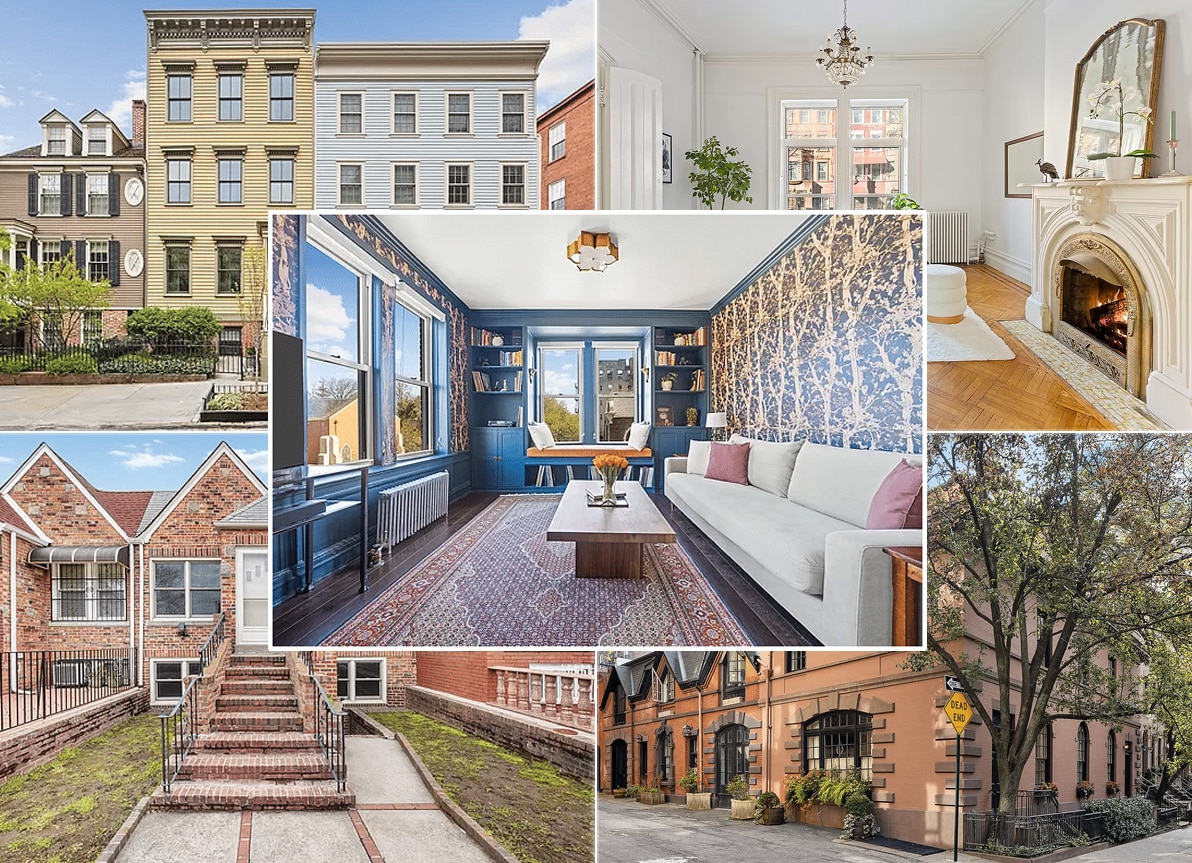
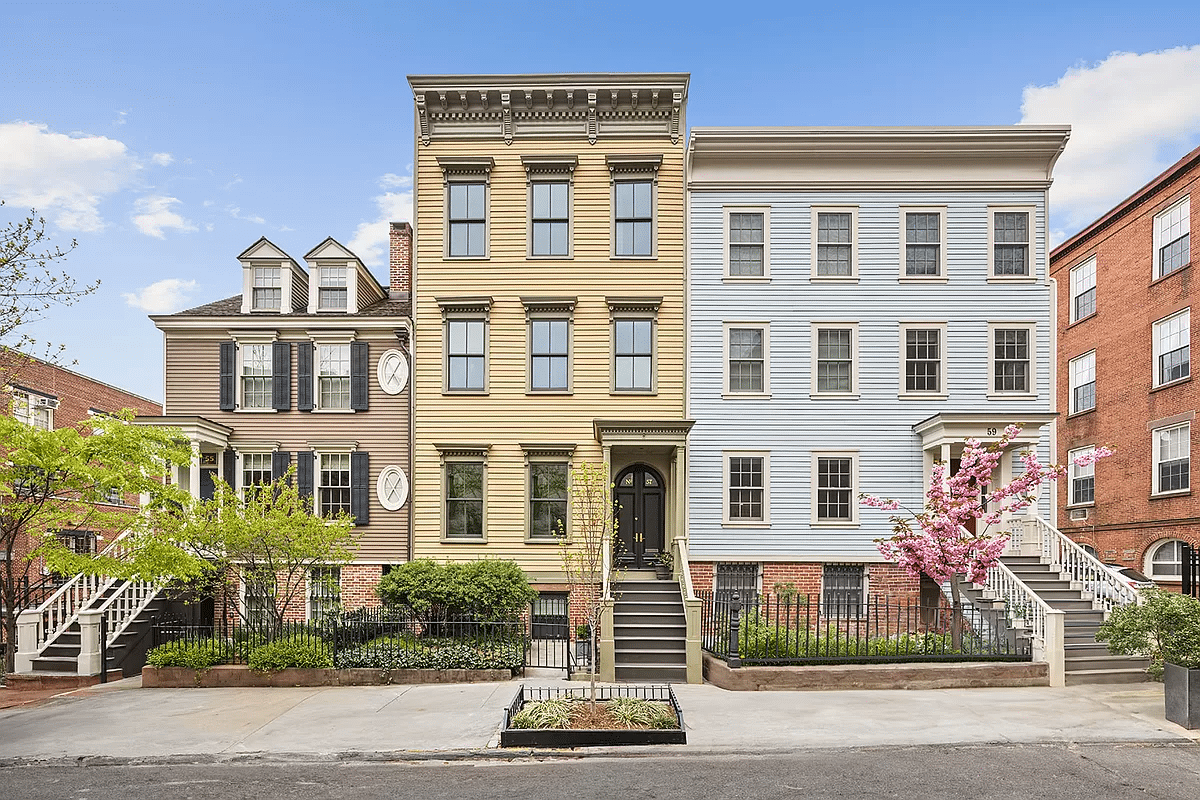
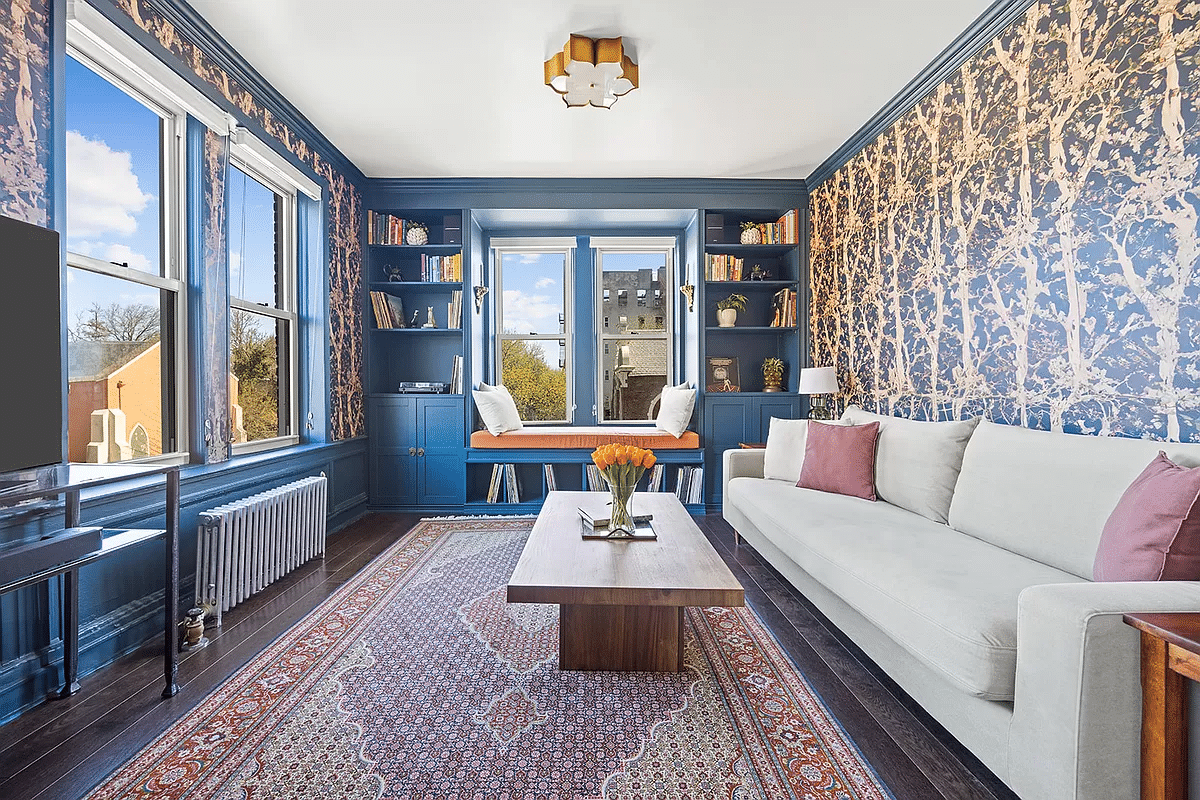
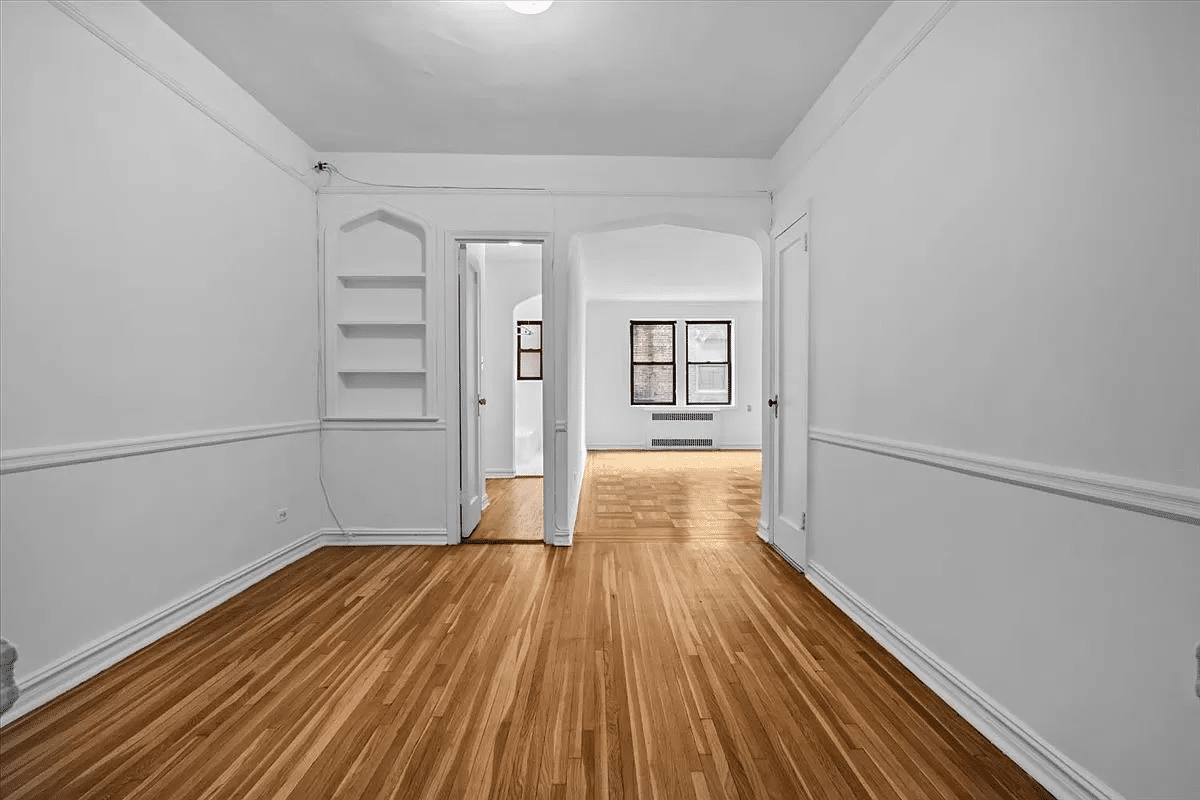




What's Your Take? Leave a Comment